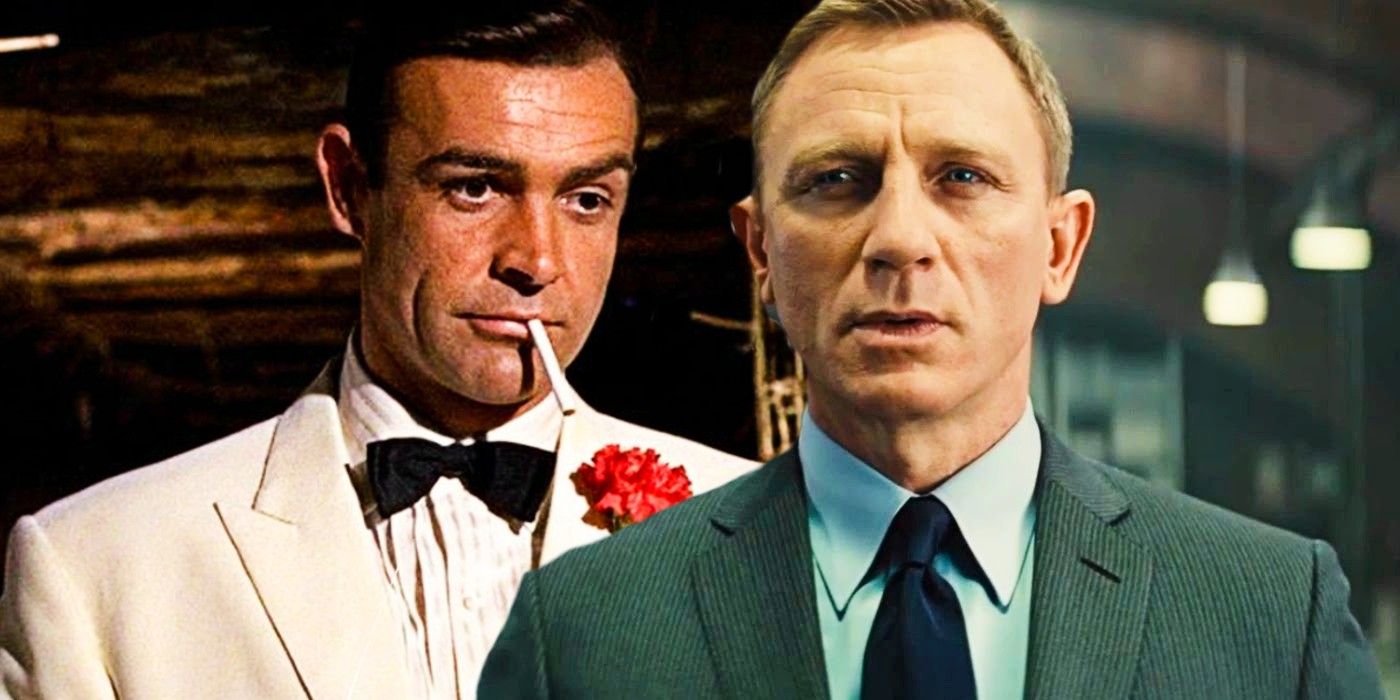
Warning: Spoilers ahead for No Time To Die
Daniel Craig's character arc as James Bond across 5 movies has debunked the Codename Bond theory that has followed the series around for decades. The role of James Bond is one of the most coveted and exclusive in film history, with more people having walked on the moon than played 007. Across almost 60 years and 25 films, the role has been played by only six actors in the official series, starting with Sean Connery in 1962's Dr. No, and No Time To Die ending Daniel Craig's Bond arc in 2021.
When the role of James Bond passes from one actor to another, the series historically attempted to maintain some continuity. There are several instances in the 20 Connery-Brosnan films that confirm that Bond is the same character, such as mentions of the death of his wife Tracy on their wedding day, to interactions with Q, M, and other supporting characters. But as the decades passed and the role changed hands it was apparent that James Bond remained broadly the same age he was in the 1960s. This weakened the suspension of disbelief that it's the same character of James Bond across all the movies. This offered the Codename Bondtheory room to grow.
Eventually, in 2006 the series could not credibly maintain its hazy continuity, and rebooted, with Daniel Craig donning the tuxedo in Casino Royale. He's become the longest-serving James Bond after 15 years and 5 films. Quantum of Solace quickly followed Casino Royale in 2008, and Skyfall was released in time for the series 50th anniversary in 2012. Craig then reunited with Skyfall Director Sam Mendes for 2015's Spectre, before closing out his time as 007 for good in No Time To Die. Throughout Daniel Craig's tenure fans of the Codename Bond theory have tried to shoe-horn his James Bond into the original series timeline, despite overwhelming evidence to the contrary.
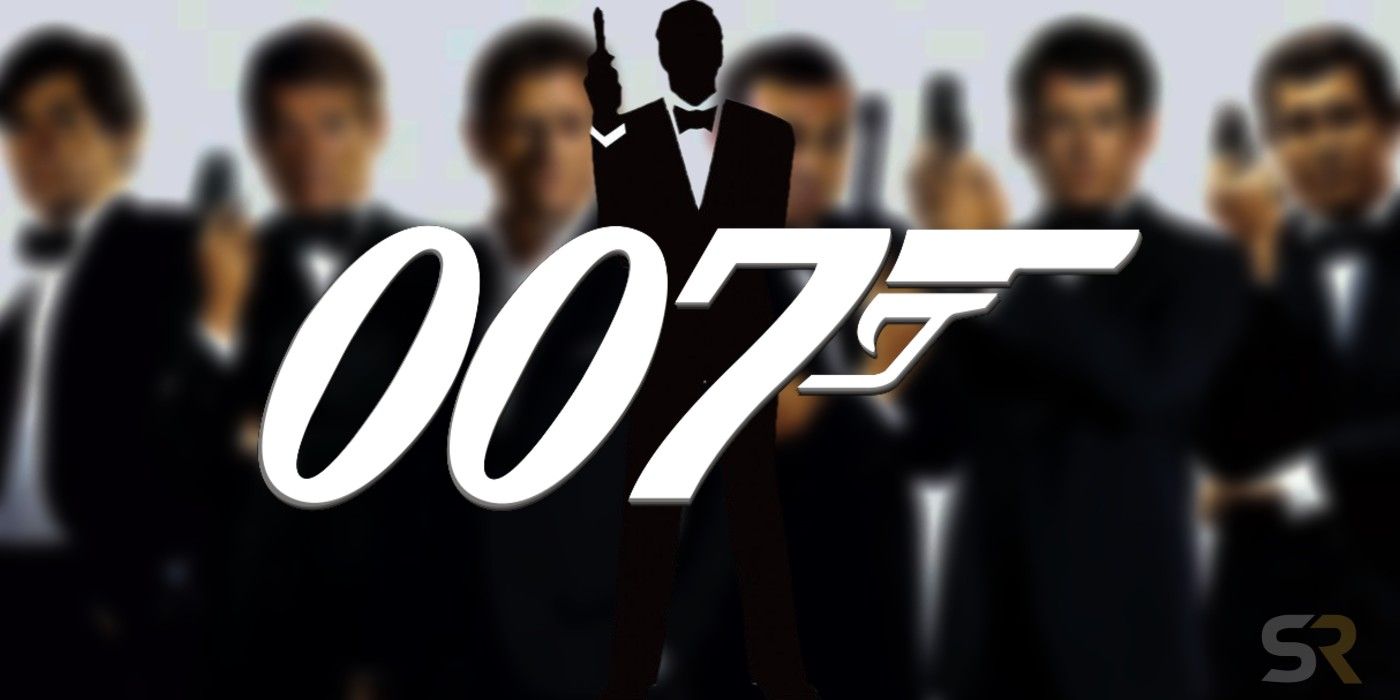
The Codename Bond theory asserts that the secret agents played by Sean Connery, George Lazenby, Roger Moore, Timothy Dalton, Pierce Brosnan, and Daniel Craig are actually all different people who are assigned the name "James Bond." The idea is that the use of the alias protects the identity of the agent so that they can retire into obscurity when the time comes. It also explains why Bond's reputation usually precedes him, and why he so freely offers his name at every possible opportunity. The codename theory first came about in fan-favorite On Her Majesty's Secret Service. After George Lazenby's Bond saves Tracy, she runs out on him, with him quipping "This never happened to the other fella." The following quick glance at the camera breaking the fourth wall was meant as a wink to the audience that the series acknowledges it's now a different actor playing James Bond. However eager fans latched onto it as evidence that the name James Bond is a codename given to double-o agents (notwithstanding the fact that the film has some continuity with Sean Connery's Bond movies).
Fans of the Codename Bond theory point to the different mannerisms and personality changes of the various Bonds, such as Roger Moore's Bond being an easy-going playboy compared to Timothy Dalton's and Daniel Craig's more serious interpretations. The theory also allegedly explains why Bond looks physically different each time it's a different actor, and how James Bond could be a secret agent across half of the 20th Century and well into the 21st. Further "proof" is that supporting characters (for the most part) such as M, Q, and Moneypenny remain the same (or are replaced within continuity), while Bond changes.
The reality is that the theory does not actually hold up to any form of scrutiny. The real reason for the hazy continuity is that James Bond's movie success was unprecedented - no one would have thought in 1962 that there would still be James Bond movies almost 60 years on. By the time the movies started to stretch credibility that it was the same character decades later the series was an institution. Audiences were used to, accepted, and even celebrated the baton being passed from one actor to another. While Bond not aging doesn't make sense, it doesn't really matter, as each 007 outing prior to Daniel Craig's movies are largely self-contained adventures anyway.
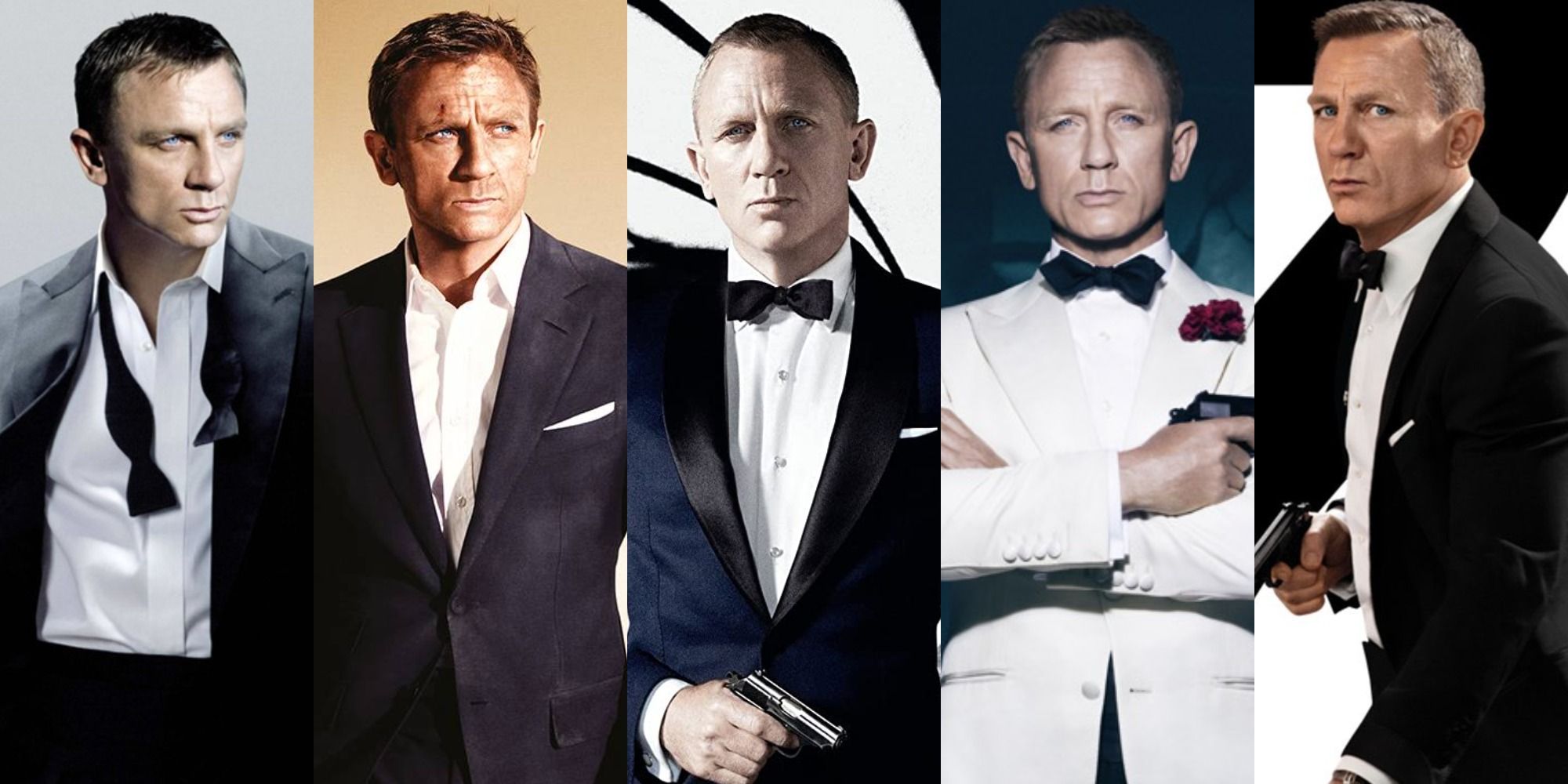
The rebooting of the series in Casino Royale initially added fuel to the Codename Bond theory. Set in modern times, it establishes James Bond as a recently promoted 007, still a blunt instrument with a lot to learn. Having Bond start again was supposedly clear evidence that the codename had been passed from Pierce Brosnan's Bond to Daniel Craig's. Supporters of the theory cite Judi Dench's M returning as further proof. What the theory fails to acknowledge though is that Judi Dench is playing an alternative version of M, not the same person as in Brosnan's era. The producers simply didn't want to lose such a talented actress that was so perfect for the role. Quantum of Solace gave Codename fans renewed hope when it was transpired that Bond's ally Mathis was actually using a codename. Even in No Time To Die there is a painting of Robert Brown's M (Octopussy-License to Kill) hanging in MI6. While obviously just an easter egg for Bond fans, codename theorists also cite this as evidence.
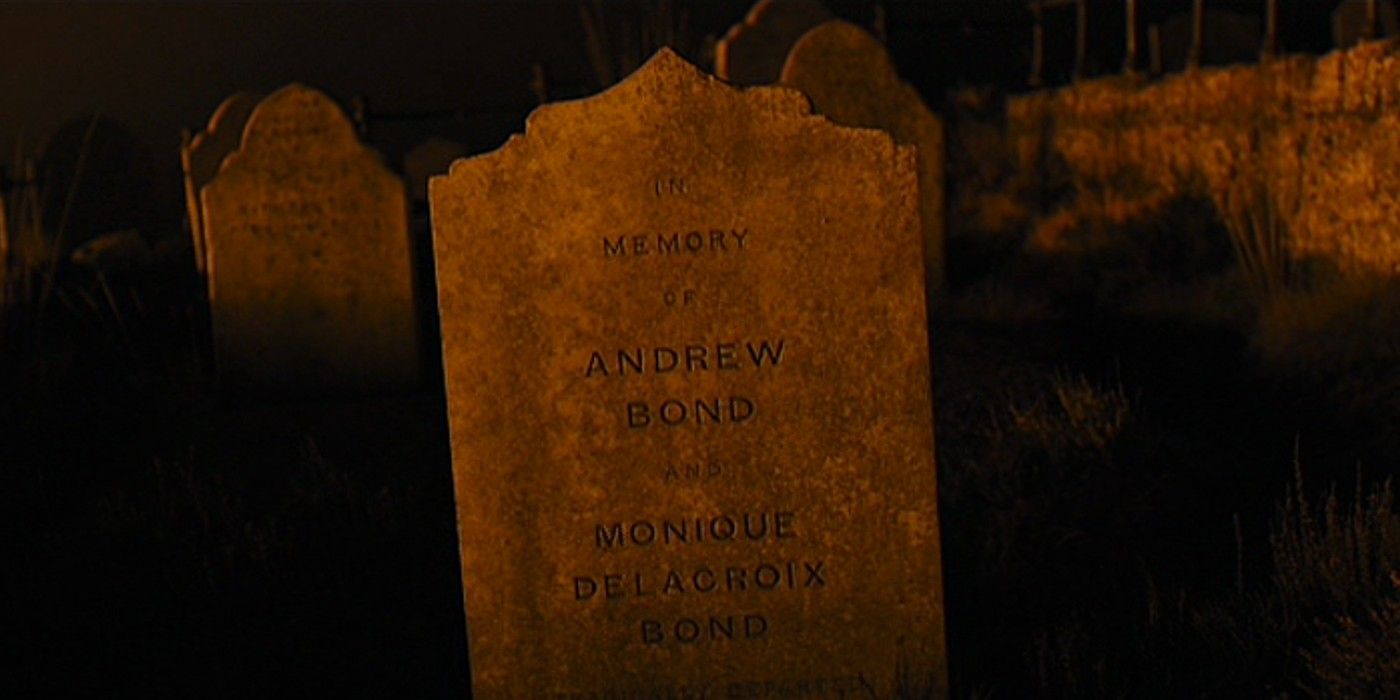
Skyfall seemingly laid the Codename Bond theory to rest by returning James Bond to his family home (the titular Skyfall). His parent's gravestones confirm the "Bond" family surname, debunking the idea that it's a codename he inherited when he became a double-o. Giving Bond a more fleshed-out backstory added more depth as a character, but it also firmly establishes that Daniel Craig's era of Bond films is entirely separate from the earlier movies. Originally Sean Connery was thought of for Skyfall's Gamekeeper. While it undoubtedly would have sent codename theorists into a frenzy, Sean Connery wouldn’t have played Bond in Skyfall. Still, the filmmakers thought better of it and wisely cast Albert Finney instead.
Spectre further debunked the theory by revealing that Bond and Blofeld were raised together as (half) brothers, which wouldn't make sense if Blofeld is supposed to be the same character from the Connery/Lazenby movies. No Time To Die had the first instance in the series of the moniker "007" being given to another agent, with Lashana Lynch adopting the title when Craig's Bond retires from MI6. It's logical that an assigned number such as 007 is passed down from agent to agent, but it doesn't make sense to keep using an actual name over and over for different people. Some fans have attempted to keep the Codename Bond theory alive despite Skyfall's revelations, but the theory is outlandish and stretches credibility to breaking point (involving brainwashing agents at Skyfall into believing they're James Bond).
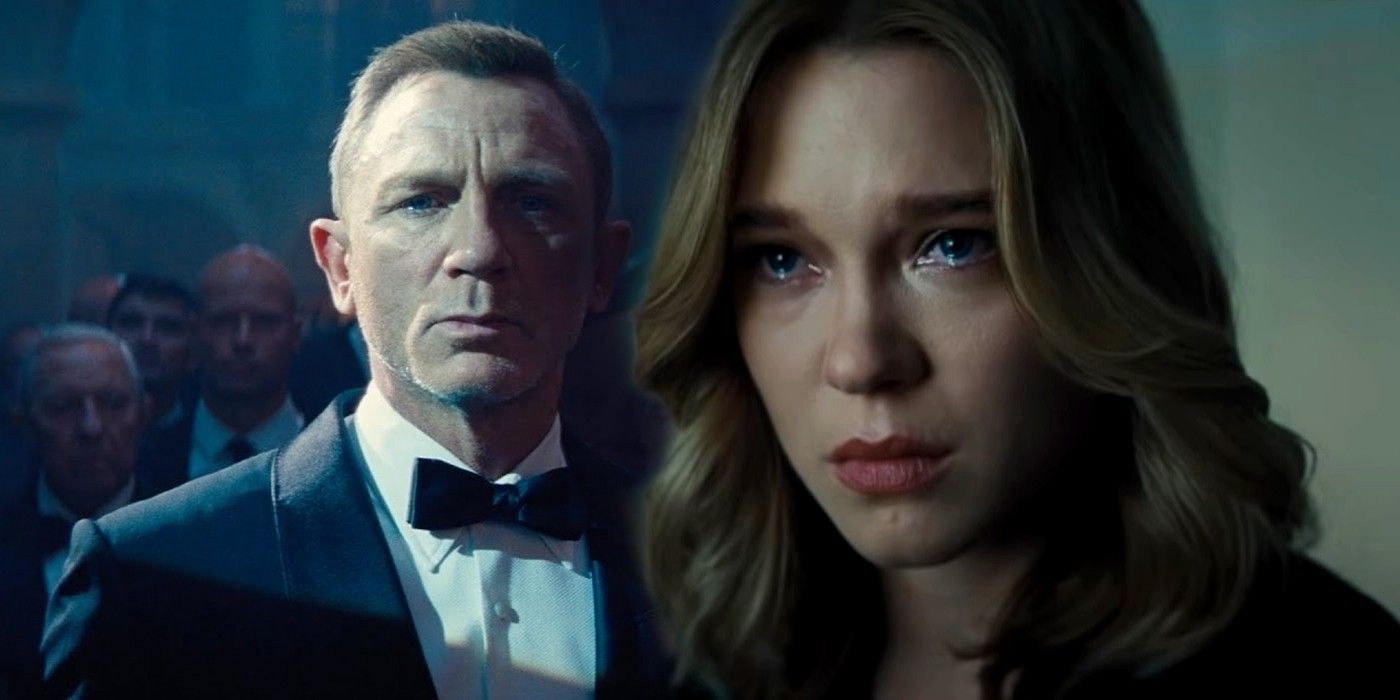
The Daniel Craig James Bond movies are the first ones in the series to really have a character arc for Bond. Historically the Bond films reveled in their escapist entertainment value and that was enough. But by the time of Casino Royale modern audiences had grown more sophisticated and demanded growth, drama, and emotion from their cinematic heroes. Casino Royale certainly accomplished that, and Skyfall too was an unmitigated success in terms of deepening Bond's character and motivations. No Time To Die though pushes Bond’s story as far as the character can go while still being the secret agent audiences know and love.
Bond has fallen in love before, usually with tragic consequences, but No Time To Die reverses this by having Bond sacrifice himself for the people he loves (Madeleine and their daughter, Mathilde). One of the criticisms leveled at previous incarnations of Bond was that he was superhuman/invincible and thus unrelatable. The emotions of James Bond being a parent is entirely relatable and a realistic development for his character. His eventual sacrifice for Madeleine and Mathilde is powerful and completes his character arc. He grows from somebody who trusts no one at the end of Casino Royale, to giving everything at the end of No Time To Die so that the people he loves can have "all the time in the world."
One of the reasons for James Bond's enduring appeal is the series malleability across the decades. Yes, it has an established formula, but it also changes with the times, including its leading man on a semi-regular basis. Trying to either make sense of the murky continuity of the earlier series or shoe-horn in Daniel Craig's movies into that timeline is an exercise in futility. The Codename Bond theory has rightly been debunked, but it doesn't make the movies any less enjoyable.
from ScreenRant - Feed https://ift.tt/3ElDrO4


0 Comments